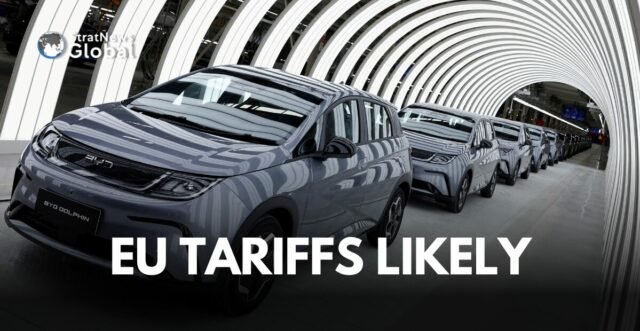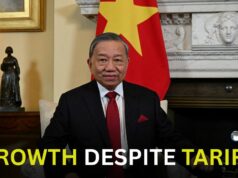European Union members are set to cast a crucial vote on Friday regarding the potential imposition of tariffs as high as 45% on Chinese-made electric vehicle imports. This represents the bloc’s most high-profile trade case and could prompt retaliatory actions from Beijing.
The European Commission, responsible for overseeing the EU’s trade policy, has proposed implementing the final duties for five years. This is in response to what it considers unfair Chinese subsidies, following a year-long anti-subsidy investigation.
According to EU regulations, the Commission can enforce the tariffs unless a qualified majority of 15 EU nations, representing 65% of the bloc’s population, votes to reject the proposal.
Blocking Majority
As per reports on Wednesday, France, Greece, Italy, and Poland plan to vote in favour, which would prevent a blocking majority against the tariffs.
In the absence of a qualified majority either way, the EU executive can adopt the tariffs. However, it could also submit an amended proposal if it wanted to secure greater backing.
The region’s top economy and major car producer, Germany, will vote against the introduction of tariffs, people with knowledge of the matter told Reuters late on Thursday.
German carmakers, for which China represents almost a third of their sales, have been particularly vocal against tariffs. Volkswagen said they were “the wrong approach”.
‘Keep Negotiations Open’
The economy minister in Spain, a previous tariff backer, also said to European Commission Vice President Valdis Dombrovskis, on Thursday, that instead of imposing tariffs, the EU should “keep negotiations open… beyond the binding vote” to strike a deal on prices as well as the relocation of battery production to the bloc.
Spanish Prime Minister Pedro Sanchez had already said on a visit to China that the EU should reconsider its position.
Some EU members are nervous about Beijing’s response. In moves seen as a retaliation, Beijing this year launched its own probes into imports of EU brandy, dairy and pork products.
However, the EU’s stance towards Beijing has hardened in the past five years, now viewing China as a potential partner in some issues, but also as a competitor and a systemic rival.
China’s Production Capacity
The Commission says China’s spare production capacity of 3 million EVs per year, which needed to be exported, is twice the size of the EU market. Given 100% tariffs in the United States and Canada, the most obvious outlet for those EVs is Europe.
The EU executive has said it is willing to continue negotiating an alternative to tariffs with China and could re-examine a price undertaking – involving a minimum import price and typically a volume cap – having previously rejected those offered by Chinese companies.
One option under negotiation is minimum import prices calculated using criteria such as the range, battery performance and length of the electric vehicle, along with whether it is two- or four-wheel drive, a source familiar with the matter said.
The tariffs range from 7.8% for Tesla to 35.3% for SAIC and other companies deemed not to have cooperated with the EU investigation. These tariffs are on top of the EU’s standard 10% import duty for cars.
(with inputs from Reuters)





